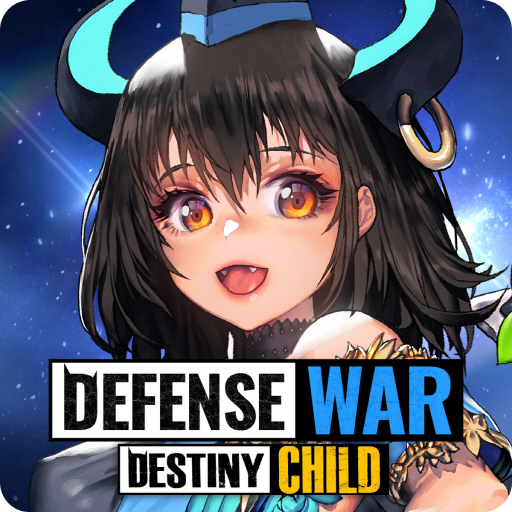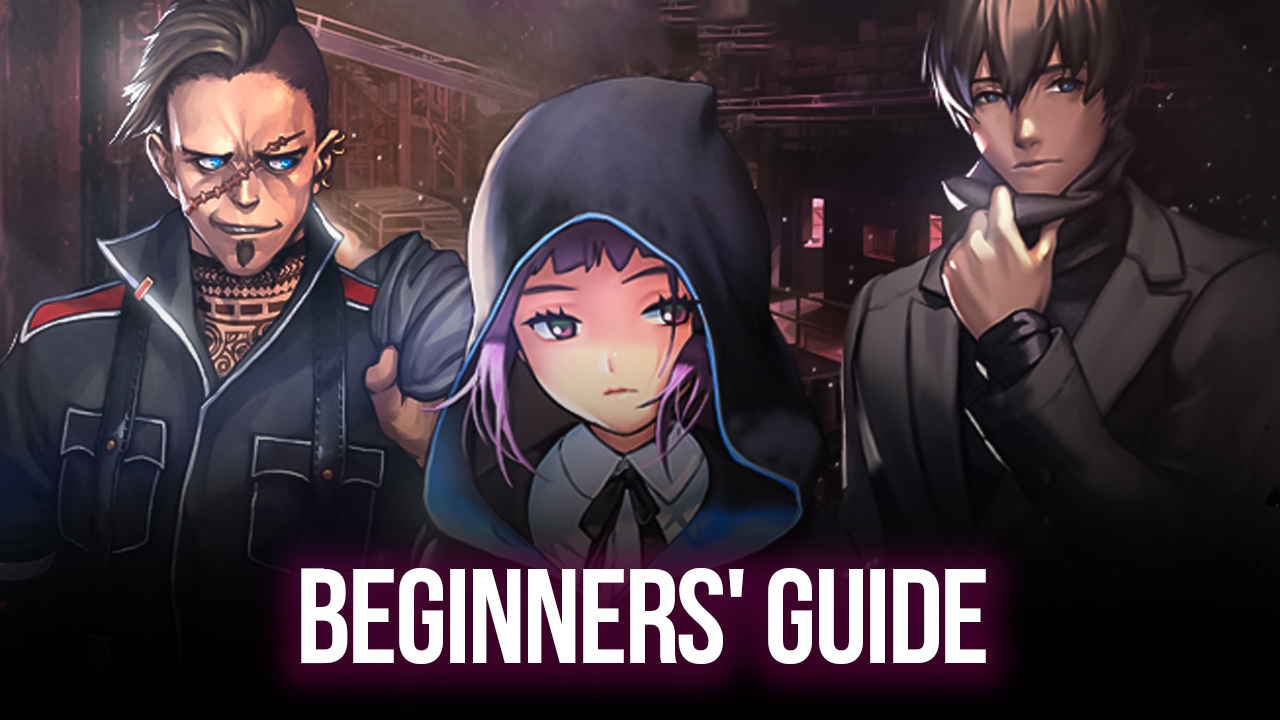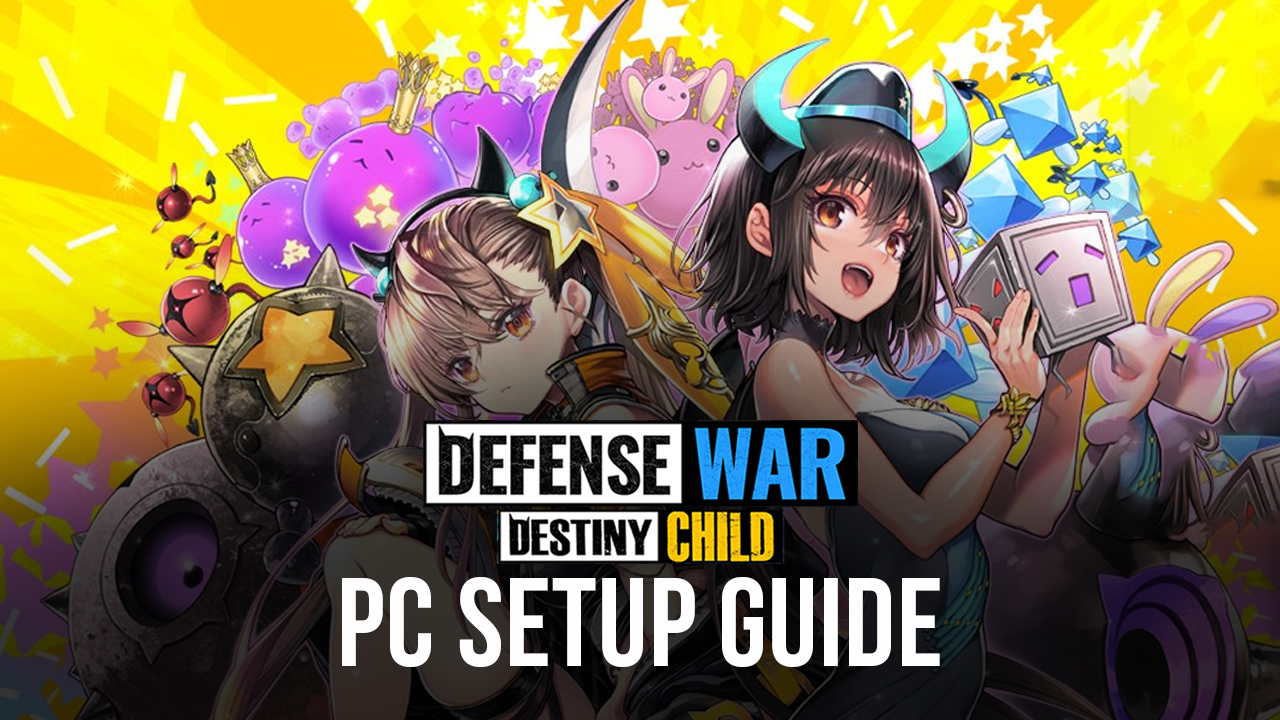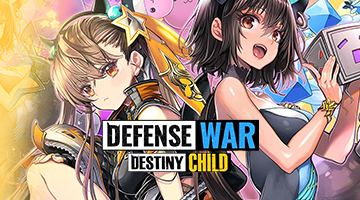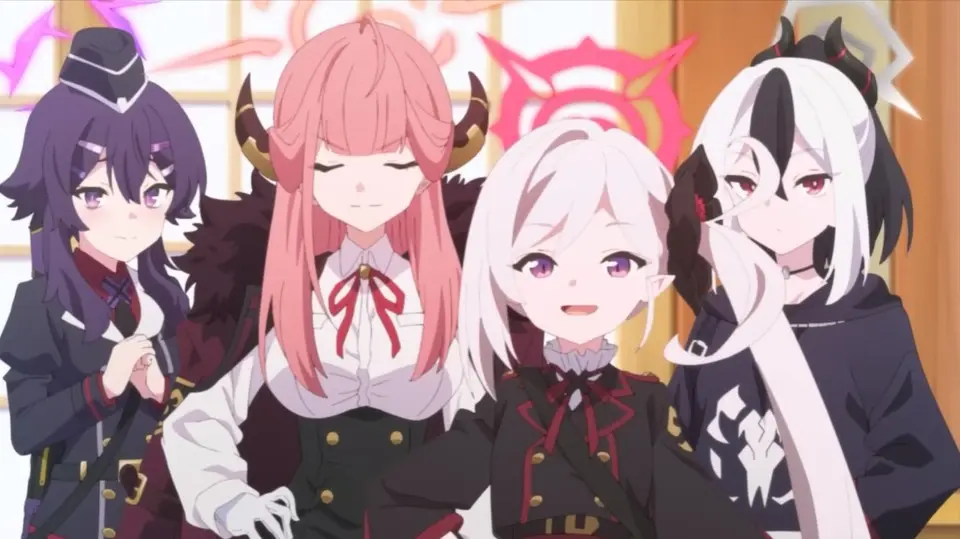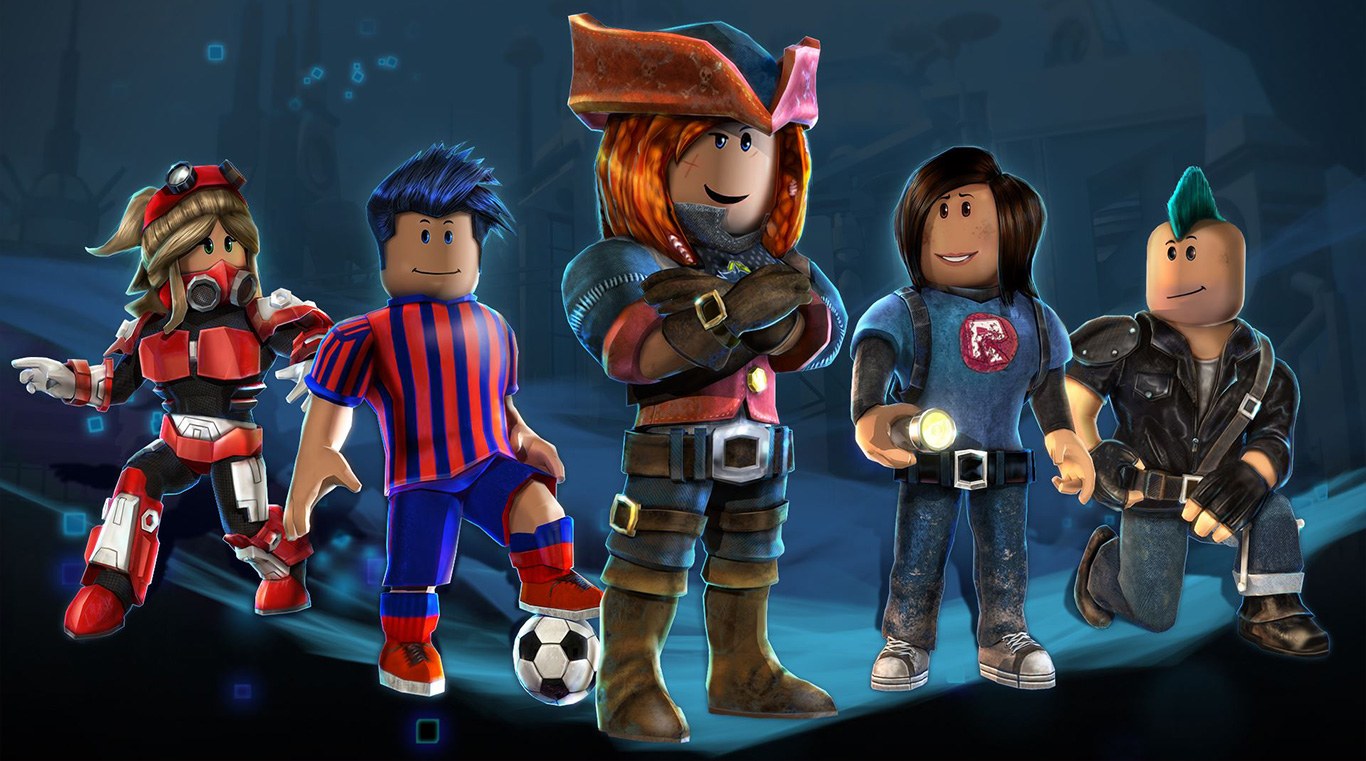Destiny Child: Defense War Tips, Tricks, and Strategies for Beginners
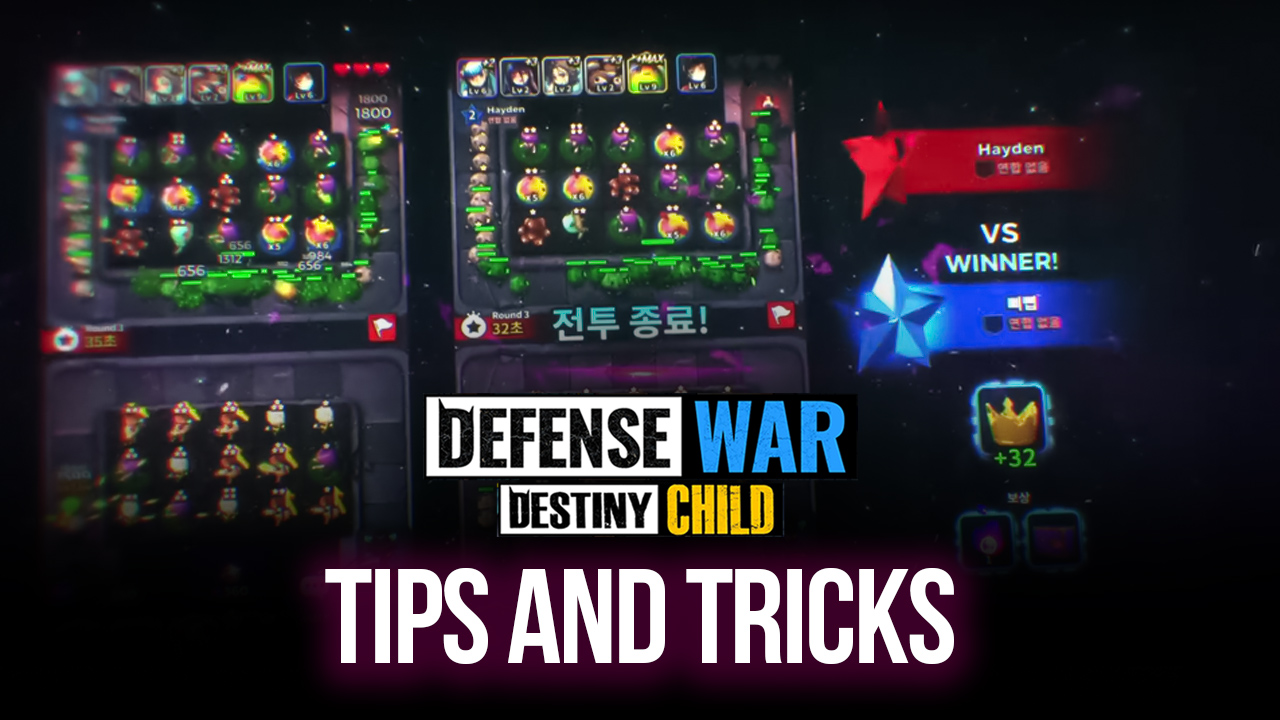
Destiny Child: Defense War is a brand new tower defense game and a sequel to the popular gacha title, Destiny Child, which offers players tons of fun as they collaborate with or compete against other gamers in protecting their bases from the hordes of enemies that relentlessly march down the lanes.
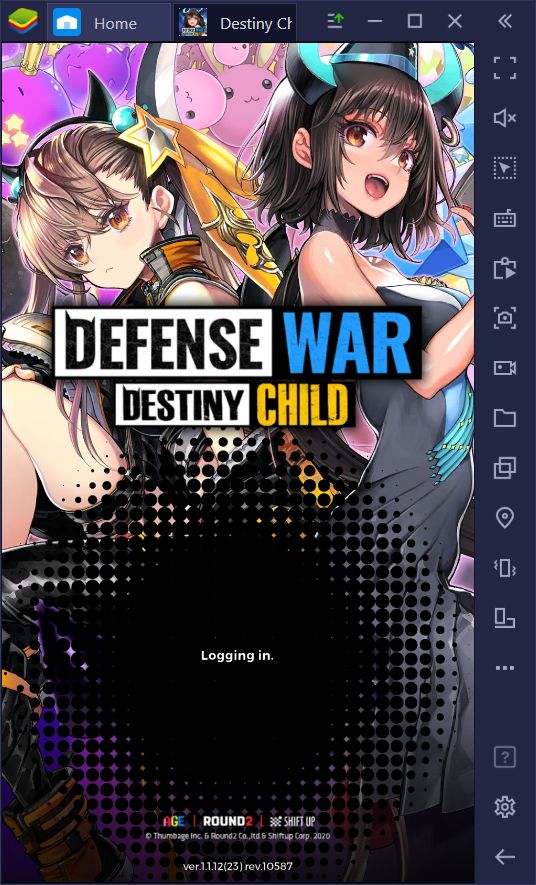
As you can probably guess from the above description, Defense War is quite a departure from its predecessor, transitioning from a regular gacha RPG to a tower defense game. In this sense, if you’re a fan of the franchise but are new to the genre, we suggest taking a look at our beginner’s guide to learn the basics.
This time around, however, we’re going to share a few basic tips, tricks, and strategies for newcomers that could help to get started on the right foot.
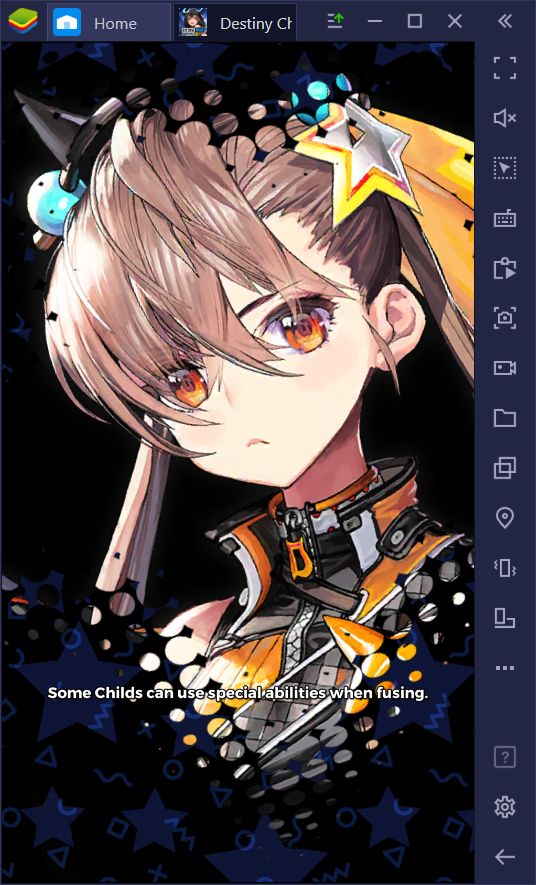
Quantity Or Quality?
One of the most important parts of optimizing your performance in Destiny Child: Defense War is prioritizing quantity at the beginning of every match.
Due to the RNG factor in that, you’ll never know what you’re going to get every time you summon a unit on the field, filling your board is important since it’ll lay the foundations for your strategy throughout the match. Furthermore, having a full board will maximize the number of attacks you throw every second, which will lead to the highest net DPS gain from early on.
Once your board is full, you can start deciding whether you want to combine your duplicate units to further increase your power or upgrade the ones you have on the field. If you have many duplicates of the same unit, you could benefit more from upgrading than combining. Keep in mind, however, that when you combine two units, the resulting Child will be randomized, which could work against you if you get a sub-par unit, especially since there’s currently no way to sell or dismiss characters that are already on the field.
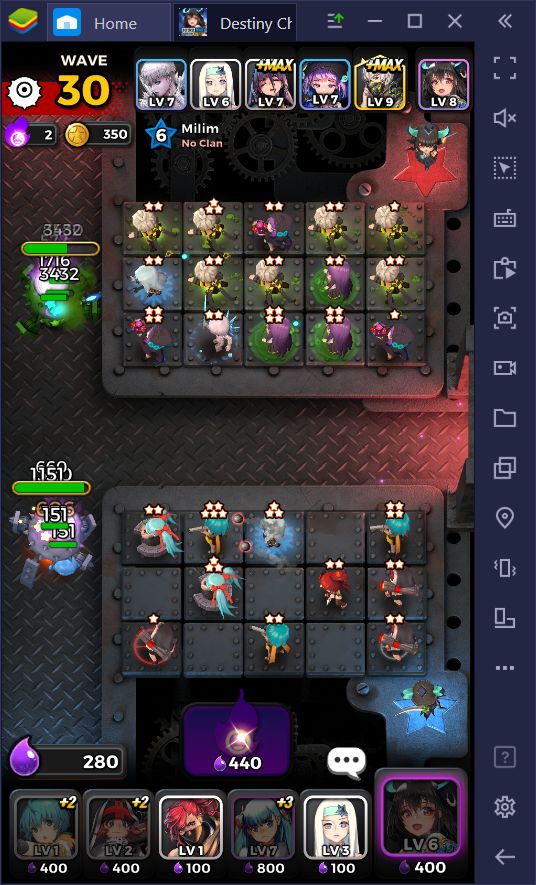
In short, prioritize quantity at the beginning of the match. Also, make sure that, if you’re going to combine units, you have enough mana to summon more units and refill your board.
Upgrade or Combine?
This aspect is directly related to the above entry since, while you can improve your units by combining them to create different Children of a higher star level, this might actually end up hurting you by cutting down on the number of attacks you’re throwing per second. In other words, while units of a higher level will have better stats, you’re replacing two attacks for only one, which can severely reduce your damage output in the early stages of the match when your units are at their weakest.
Meanwhile, another form of increasing your power in the field is by upgrading your existing units by paying Mana. These upgrades are temporary and are removed when the match ends, but can significantly increase your damage output, especially if you have units of high star levels on the board.
The way upgrading works is that they increase your units’ attack by adding their base damage to their current star level to their stats. For example, if your unit has 50 damage at 1 star and +0, upgrading it will have their damage bumped up to 100 at +1; 150 at +2; 200 at +3, and 250 at MAX level. However, if your unit has 150 damage at 3 stars and +0, it’ll have 300 damage at +1; 450 at +2; 600 at +3, and 750 at MAX.
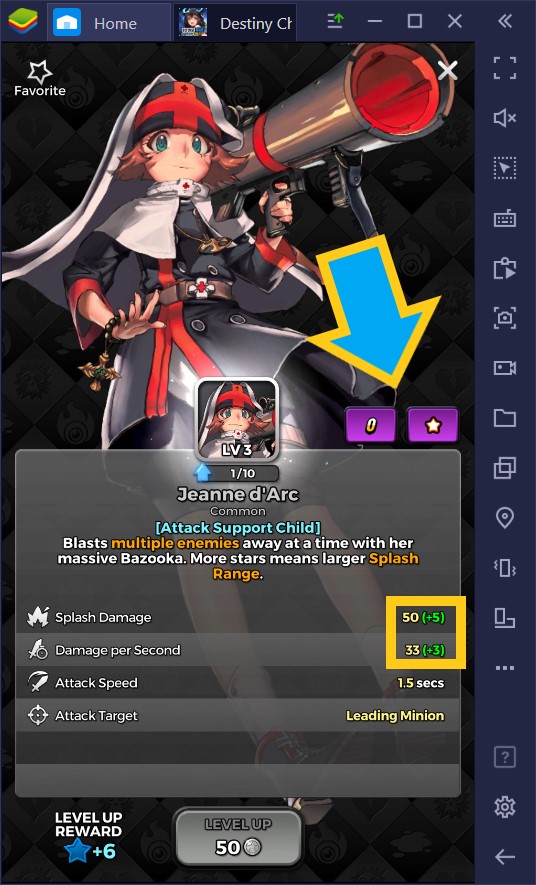
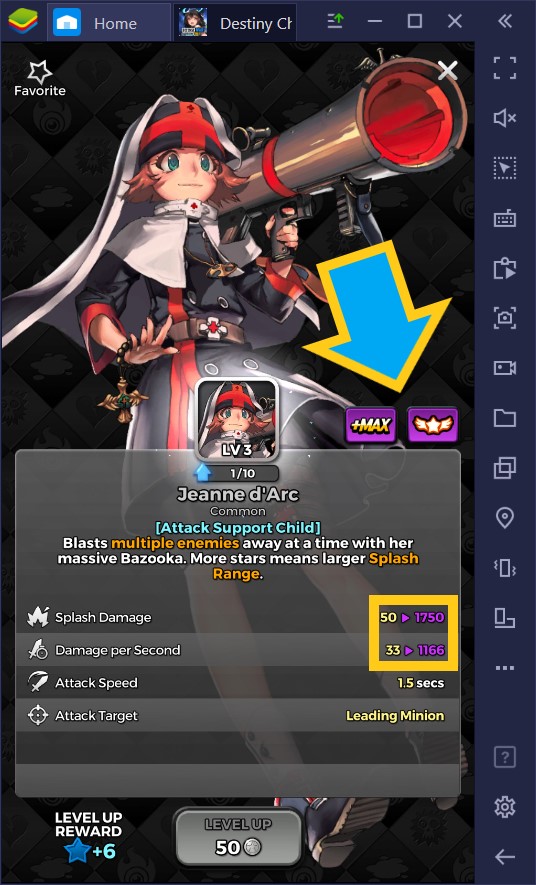
It’s important to weigh the pros and cons of both combining and upgrading before you make a decision. However, as a general rule of thumb, if you have multiple copies of a single character at high star levels on the field, you’d gain much more from upgrading than by combining them, especially because you’ll never know what you’re going to get when you combine units, and the result might end up losing you the match.
Learn the Different Unit Types
An important aspect of creating effective formations in Destiny Child: Defense War is to use the right unit combinations.
Your Childs in this game come in different types, which will determine their role in the field. These types are the following:
- Attack: The strongest of the bunch. They usually have the highest attack damage, as well as effects that can further increase their damage per attack.
- Attack Support: Though not as strong as their “Attack” counterparts, these units often have additional effects that can either cripple the enemy, attack in AoE, or trigger other interesting passives on hit.
- Control: These units often boast effects that can disrupt the enemy’s formations in one way or another. Great for PvP matches.
- Support: Units that, aside from attacking, can also unleash beneficial effects when fusing. In some cases, their mere presence can boost the stats of nearby allies.
- Special: The most varied types of units. These boast a wide variety of different passive effects. Though they can be quite difficult to fit in any formation, they can facilitate certain interesting strategies.
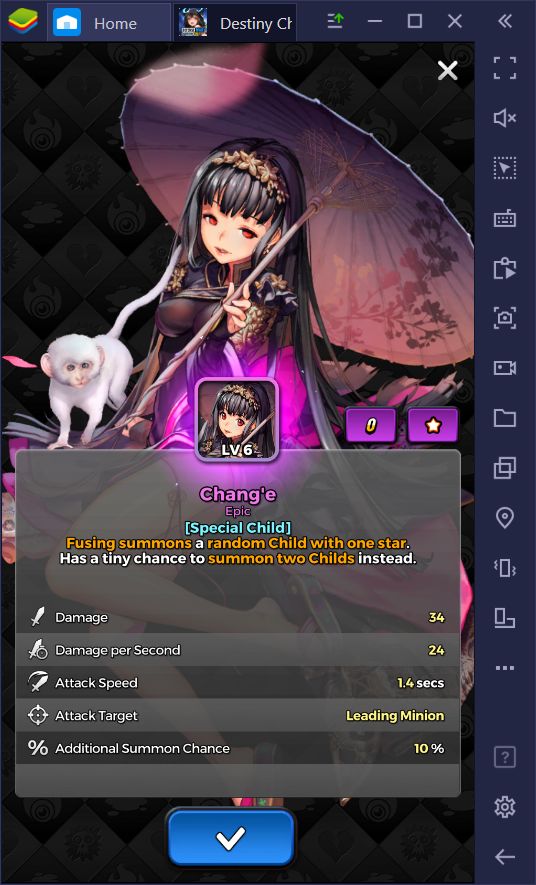
While your main bulk of units will often consist of either Attack or Attack Support Childs, there are countless opportunities for combining them with other types in order to create interesting and effective strategies.
Grab Those Pre-Registration Rewards
If you checked out the preview article we wrote a few weeks ago, then you’ll probably have pre-registered in anticipation of the game’s release. If this is the case, then the very first thing you’ll want to do after finishing the tutorial is checking out your inbox to pick up your pre-registration rewards.
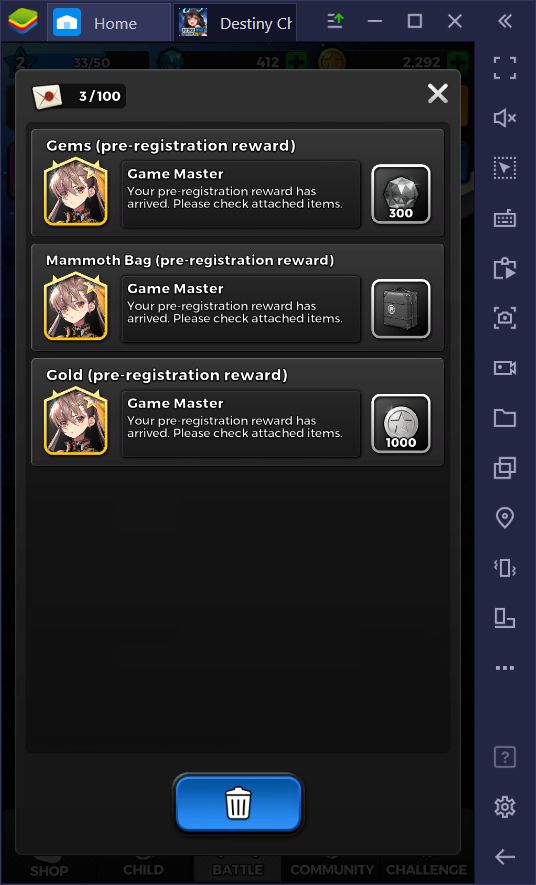
These prizes consist of lots of awesome goodies, including powerful characters and resources such as gold, diamonds, and character fragments. Claiming these prizes is the best way to get a headstart in Destiny Child: Defense War.
Use Your Mastery Points Wisely
Every time your account levels up (at least, up until level 13), you’ll receive a single mastery point that you can invest via the corresponding button on the Child menu to activate powerful and important boosts. These skills can range from significantly increasing your power by permanently boosting your units’ stats, to activating interesting passive effects such as making your first summoning a 3-star or making your first skill use free.
Suffice to say, it’s important that you choose the right masteries for your current lineup. For example, if you’re rolling with a formation focused on critical attacks, you should definitely pick up the mastery that increases the damage done with every critical hit.
Don’t worry too much if you messed up your masteries the first time around since these skills are mostly generalized and can come in handy in just about any situation. Moreover, you have up to 5 preset pages that you can freely customize from the Child menu, and experiment with different mastery setups. Speaking of which, these presets are great ways to create lineups for just about any occasion and to switch between them with just a few clicks.
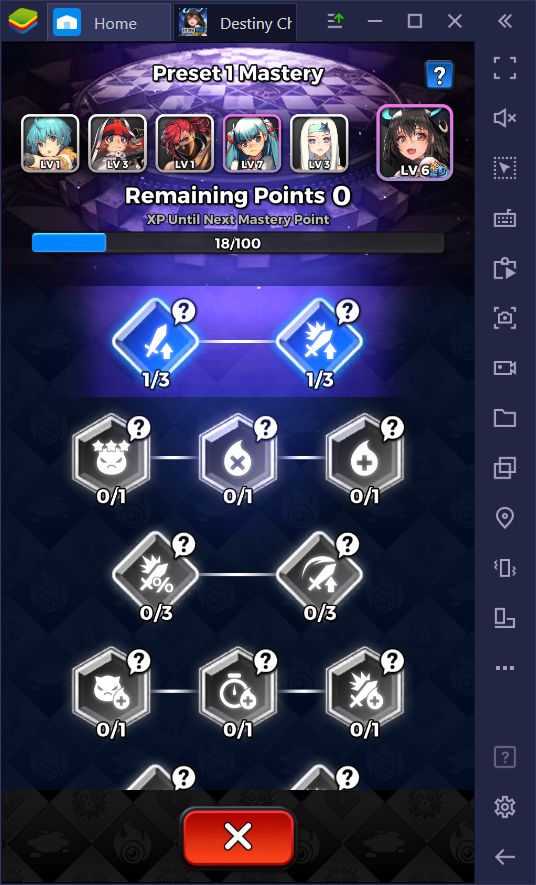
These are just 5 simple tips and tricks for Destiny Child: Defense War that you can keep in mind whenever you play, in order to help you win matches and get as far as possible in the co-op mode. Do you have any other useful tidbits of information to share? Let us know in the comments below!

